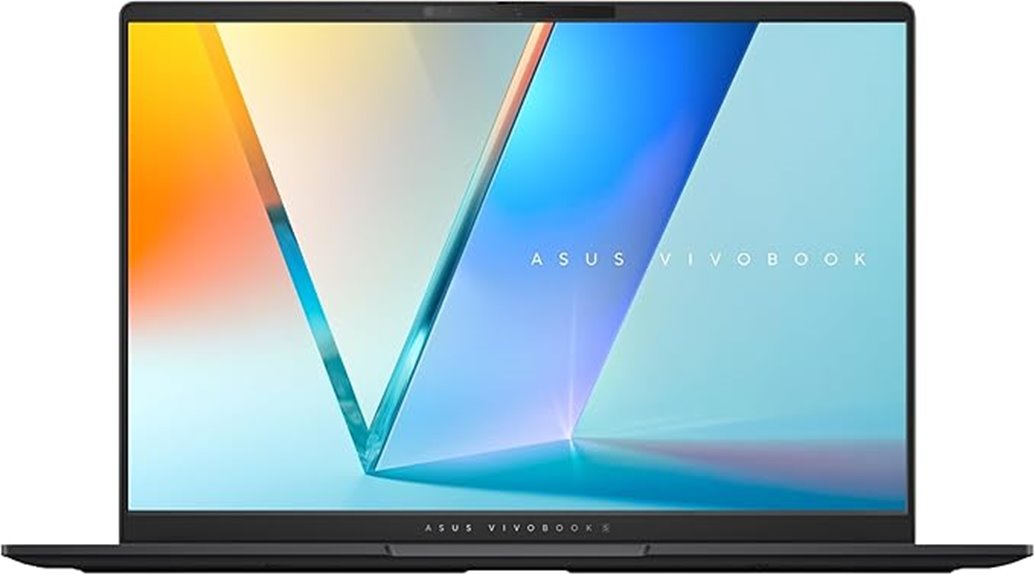Best Laptop for Chemical Engineering Students (Top 5 Picks for 2025)
If you’re a chemical engineering student, you need a laptop that can keep up with your demanding coursework. The top choices include the Apple MacBook Pro with M4 chip, Acer Swift X 14, Apple 2025 MacBook Air, ASUS Vivobook S 14 OLED, and Samsung Galaxy Book4 Pro. Each of these options offers powerful performance, impressive display quality, and portability. Stick around to discover key factors to consider for making the right choice that suits your academic needs.
In the interest of full disclosure, we would like to inform you that some links on our website are affiliate links. By clicking on these links and completing a purchase from our partners, we may receive a nominal commission at no extra cost to you. Rest assured, our affiliate partnerships do not compromise the integrity of our editorial content or product evaluations. For further clarification, kindly refer to our comprehensive affiliate disclosure.
Table of Contents
What Are the Best Laptop for Chemical Engineering Students to Buy This Year?
Here are my top picks for the best laptop for chemical engineering students, you can consider this year.
Apple MacBook Pro Laptop with M4 Chip (14.2-inch, Space Black)
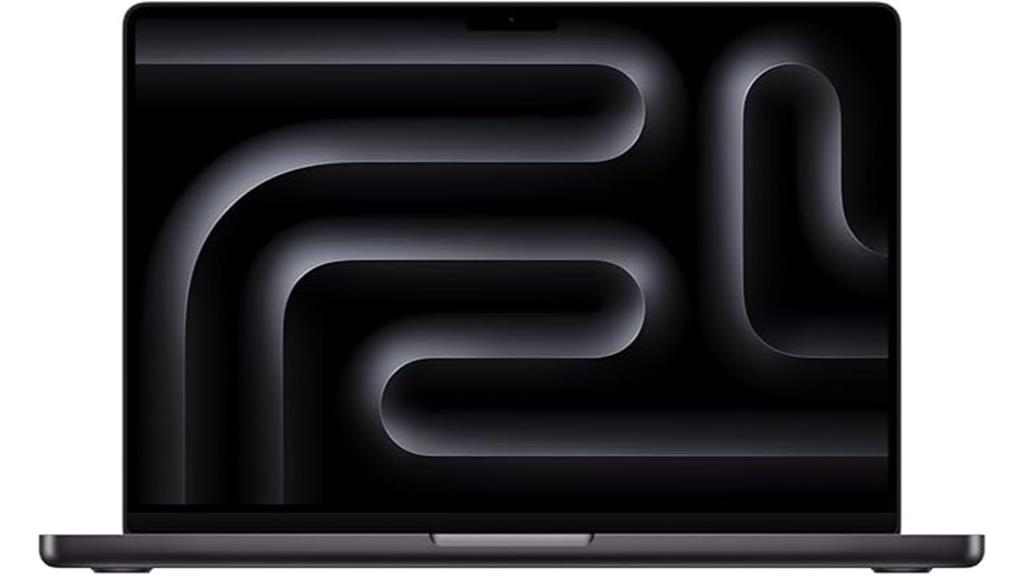
For chemical engineering students looking for a powerhouse laptop, the Apple MacBook Pro with M4 chip is an excellent choice. With its 10-core CPU and GPU, this 14.2-inch Liquid Retina XDR display offers unmatched speed for multitasking and running productivity apps. You’ll appreciate the 16GB of unified memory and 512GB SSD storage, ensuring smooth performance whether you’re plugged in or on battery. The stunning visuals, featuring up to 1600 nits peak brightness, enhance your design work. Plus, seamless integration with Apple devices and compatibility with essential apps like Microsoft 365 and Adobe Creative Cloud makes it a top-tier option for your studies.
Best For: Chemical engineering students and professionals seeking a powerful and efficient laptop for multitasking and design work.
Pros:
- Exceptional Performance: The M4 chip with a 10-core CPU and GPU delivers outstanding speed for productivity and pro apps.
- Stunning Display: The 14.2-inch Liquid Retina XDR display offers incredible brightness and contrast, enhancing visual work.
- Seamless Integration: Works effortlessly with other Apple devices and supports essential applications like Microsoft 365 and Adobe Creative Cloud.
Cons:
- Price Point: Higher cost compared to other laptops in the market may be a barrier for some users.
- Limited Upgrade Options: Unified memory and storage are not user-upgradable, which could be a concern for future needs.
- Port Selection: May lack a variety of ports, requiring adapters for certain connections.
Acer Swift X 14 Laptop (SFX14-72G-77NJ)
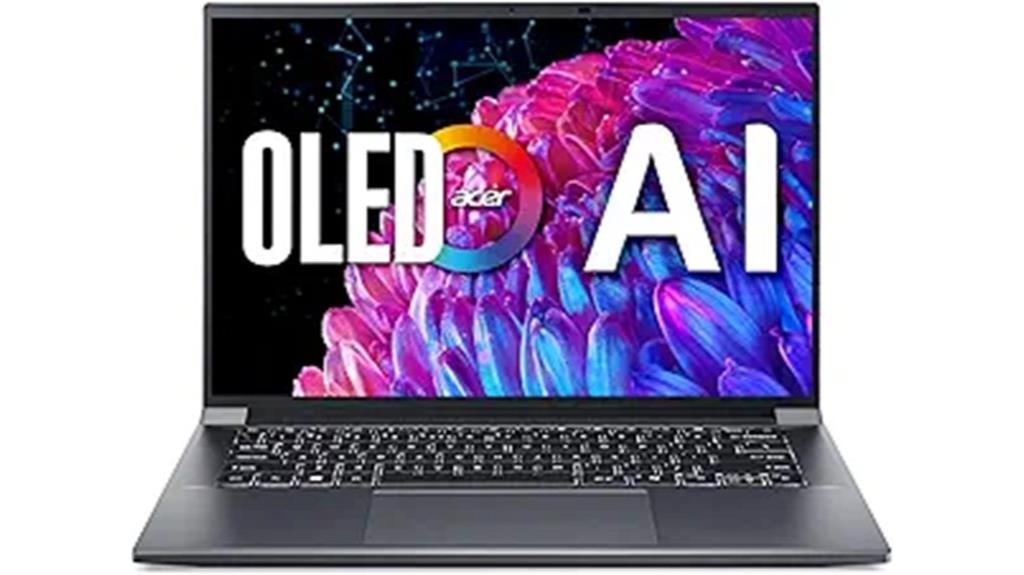
The Acer Swift X 14 Laptop (SFX14-72G-77NJ) stands out as an excellent choice for chemical engineering students who demand high performance and cutting-edge technology. With its Intel Core Ultra 7 processor and NVIDIA GeForce RTX 4060 GPU, it effortlessly handles graphically demanding software. The stunning 14.5-inch OLED display boasts a 2880 x 1800 resolution, ensuring vivid visuals. You’ll appreciate the AI assistance through Windows Copilot for efficient multitasking and collaboration tools like the 1080p FHD webcam. With 16GB of memory and a 1TB SSD, this laptop offers lightning-fast performance and ample storage for all your projects.
Best For: The Acer Swift X 14 Laptop (SFX14-72G-77NJ) is best for chemical engineering students and professionals seeking high performance and advanced technology for demanding applications.
Pros:
- Exceptional processing power with Intel Core Ultra 7 and NVIDIA GeForce RTX 4060 for handling graphically intensive software.
- Stunning 14.5-inch OLED display with high resolution and color accuracy, ideal for detailed visual work.
- Robust connectivity options including Wi-Fi 6E and Bluetooth 5.3, ensuring seamless collaboration and fast data transfer.
Cons:
- The compact design may limit upgrade options for future hardware enhancements.
- Battery life may be shorter under heavy usage with demanding applications.
- The premium features come at a higher price point compared to entry-level laptops.
Apple 2025 MacBook Air 15-inch Laptop with M4 Chip
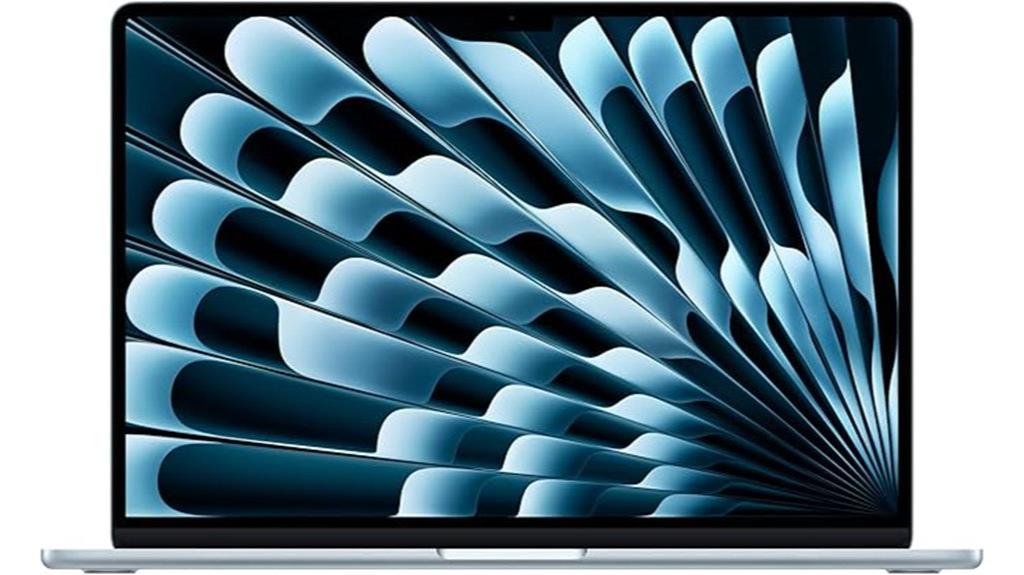
Looking for a laptop that excels in performance and speed? The Apple 2025 MacBook Air 15-inch with the M4 chip delivers just that. You’ll experience seamless multitasking, video editing, and gaming, thanks to its impressive processing power. With up to 18 hours of battery life, you can work unplugged without sacrificing performance. The stunning 15.3-inch Liquid Retina display showcases vibrant colors and sharp details. Plus, enjoy high-quality visuals and sound with the 12MP Center Stage camera and immersive Spatial Audio. With ample connectivity options, including Thunderbolt 4 ports, this MacBook Air is perfect for your chemical engineering studies.
Best For: Students and professionals seeking a high-performance laptop for multitasking, video editing, and gaming.
Pros:
- Exceptional speed and multitasking capabilities with the M4 chip.
- Stunning 15.3-inch Liquid Retina display for rich visuals.
- Long battery life of up to 18 hours, perfect for on-the-go use.
Cons:
- Limited to two external displays, which may not suffice for heavy multitaskers.
- Higher price point compared to other laptops in the same category.
- May require adaptation for users transitioning from Windows laptops.
ASUS Vivobook S 14 OLED Slim Laptop (M5406WA-DS76)
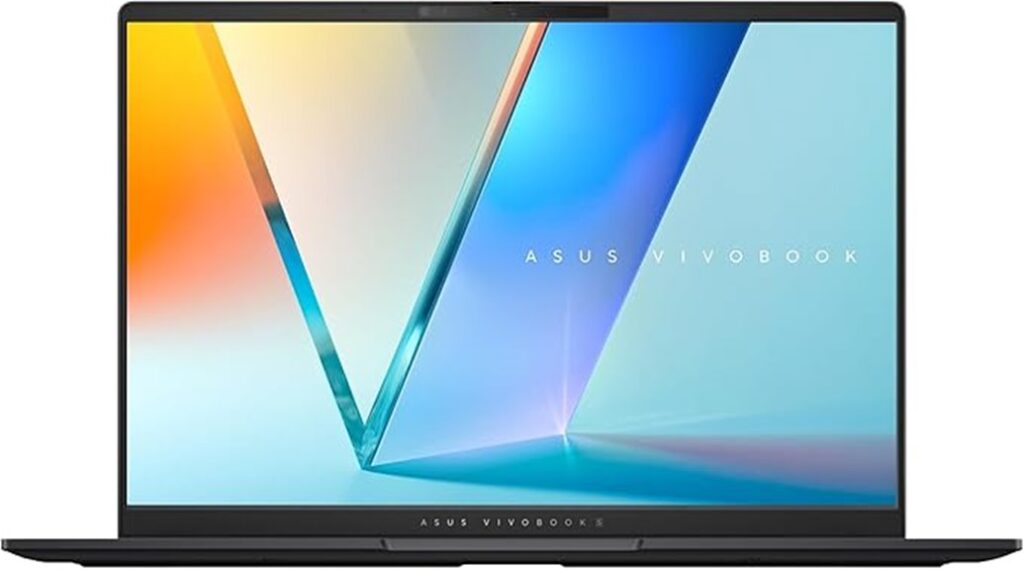
Engineered for high performance, the ASUS Vivobook S 14 OLED Slim Laptop (M5406WA-DS76) is an exceptional choice for chemical engineering students who require powerful processing capabilities. With its AMD Ryzen 9 365 processor and 24GB of LPDDR5X RAM, you’ll tackle demanding tasks effortlessly. The stunning 14” 3K OLED display boasts a 120Hz refresh rate and 600 nits peak brightness, ensuring vibrant visuals for your projects. Weighing only 2.87 lbs and measuring just 0.63” thick, it’s highly portable. Plus, the customizable RGB backlit keyboard enhances your ergonomic typing experience, making it perfect for late-night study sessions.
Best For: The ASUS Vivobook S 14 OLED Slim Laptop is best for chemical engineering students and professionals seeking high-performance computing in a portable design.
Pros:
- Exceptional processing power with AMD Ryzen 9 365 and 24GB RAM for demanding tasks.
- Stunning 14” 3K OLED display with 120Hz refresh rate for vibrant visuals.
- Lightweight and slim design enhances portability for on-the-go use.
Cons:
- Limited storage capacity at 512GB SSD may require external solutions for large projects.
- The customizable RGB keyboard may not appeal to all users.
- Price point may be higher compared to entry-level laptops.
Samsung Galaxy Book4 Pro Business Laptop (NP944XGK-KG4US)
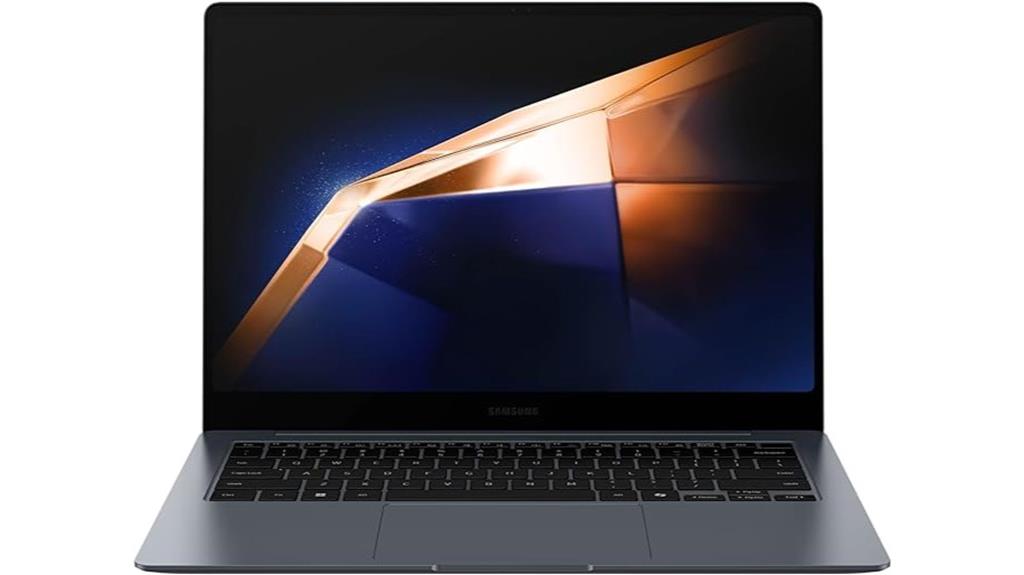
For chemical engineering students who need powerful performance and portability, the Samsung Galaxy Book4 Pro Business Laptop (NP944XGK-KG4US) stands out with its Intel Core Ultra 7 processor and 32GB of RAM. Weighing just 2.71 lbs, its 14-inch 3K AMOLED touchscreen offers stunning visuals, perfect for detailed presentations. With a 1TB SSD, you’ll have ample storage for all your projects. The laptop’s battery lasts up to 8 hours, ensuring you can work throughout the day. Plus, its sleek design and fast connectivity options make it an excellent choice for staying productive on the go.
Best For: Chemical engineering students and professionals seeking a powerful, portable laptop with exceptional performance for multitasking and presentations.
Pros:
- High-performance Intel Core Ultra 7 processor with 32GB of RAM for seamless multitasking.
- Stunning 14-inch 3K AMOLED touchscreen provides excellent visuals for detailed work.
- Lightweight design at 2.71 lbs and long battery life of up to 8 hours makes it ideal for on-the-go productivity.
Cons:
- High retail price of $1749 compared to competitors offering similar specs at lower prices.
- Limited RAM upgrade options in certain regions, capping at 16GB.
- Perception of OEM SSD quality being low for the price point.
READ MORE: Best Laptop for Podcast, Best Laptop for Podcasting and Video Editing, Best Laptop for Multiple Monitors, Best Laptops for Fusion 360, Best Laptop for Bloggers, Best Laptop for Animation and Graphic Design, Best Laptop for Xactimate, Best Laptop for Virtual Assistant, Best Laptop for Plc Programming, Best Laptops for Bloggers
Factors to Consider When Choosing the Best Laptop for Chemical Engineering Students
When you choose a laptop for chemical engineering, you need to consider several key factors. Performance and processing power are crucial for running complex simulations, while display quality and size can enhance your overall experience. Additionally, battery life, portability, and connectivity options will play a significant role in how effectively you can work on the go.
Performance and Processing Power
Choosing the right laptop for your chemical engineering studies hinges on performance and processing power. You’ll want a high-performance processor like an Intel Core i7 or AMD Ryzen 7 to efficiently handle complex simulations and calculations. Aim for at least 16GB of RAM to ensure smooth multitasking and to run resource-intensive software without delays. A dedicated graphics card, such as the NVIDIA GeForce RTX, can significantly boost performance in graphical simulations and modeling applications. Fast SSD storage of at least 512GB is essential for quick data access and loading times, especially when working with large datasets. Lastly, ensure your laptop can support advanced software tools like MATLAB, COMSOL Multiphysics, and ChemCAD, critical for your learning and projects.
Display Quality and Size
While navigating the complexities of chemical engineering, a laptop’s display quality and size play a crucial role in your productivity. A higher resolution, like 2880 x 1800 or 3840 x 2160, enhances clarity when analyzing intricate diagrams and data. Look for a screen size of at least 14 inches; this allows comfortable multitasking, letting you run simulations alongside textbooks or lecture notes. An OLED or Liquid Retina display provides richer color accuracy and contrast, vital for visualizing chemical reactions. Features like a high refresh rate of 120Hz improve fluidity during presentations and interactive software. Finally, ensure brightness levels are 1000 nits or higher to maintain visibility in various lighting conditions, keeping you productive wherever you are.
Battery Life and Efficiency
Battery life and efficiency are essential considerations for chemical engineering students, especially since you’ll often find yourself working on projects or attending classes away from power outlets. Look for laptops offering battery durations of up to 18 hours, ensuring you can tackle intensive tasks like simulations without constantly searching for a charger. Modern processors with efficient power management features help maintain performance while extending battery life, giving you longer productivity between charges. High-capacity batteries (63Wh or larger) are ideal for heavy workloads. Fast charging capabilities can minimize downtime, allowing you to quickly recharge during short breaks. Additionally, consider display technology; OLED displays often consume less power with darker images, effectively prolonging your laptop’s battery life during use.
Portability and Weight
For chemical engineering students, portability and weight are critical factors that can significantly impact daily productivity. You’ll want a laptop that’s easy to transport between classes, labs, and study areas. Look for lightweight options, ideally under 3.5 lbs, and a slim profile of less than 0.7 inches thick so it fits comfortably in your backpack. Battery life matters too; a laptop that lasts 8 hours or more on a single charge will keep you powered during long study sessions away from outlets. Also, consider durability—choose models with robust designs that can handle the rigors of frequent transport. Prioritizing these features ensures you stay efficient and comfortable throughout your busy academic schedule.
Connectivity Options Available
When choosing a laptop for your chemical engineering studies, connectivity options are crucial for ensuring you can effectively interface with various tools and devices. Look for laptops with multiple USB ports, both USB-A and USB-C, to connect external drives and specialized lab equipment. Thunderbolt 3 or 4 ports are essential for high-speed data transfer and compatibility with advanced docking stations or external GPUs, which help with large datasets and simulations. HDMI or DisplayPort outputs are great for connecting to external monitors for presentations or group work. Additionally, a microSD card reader can expand storage or transfer data from cameras and sensors. Lastly, ensure you have Wi-Fi 6E and Bluetooth 5.3 for seamless connectivity in labs and fieldwork.
Software Compatibility Requirements
Choosing a laptop that meets the software compatibility requirements for chemical engineering is essential, as you’ll need to run demanding applications like MATLAB, Aspen Plus, and AutoCAD. Look for a machine with at least 16GB of RAM to handle multitasking and large datasets efficiently. A dedicated GPU is also important for rendering complex visualizations, so ensure your laptop’s graphics capabilities align with your software needs. Opting for an SSD instead of an HDD will drastically improve load times and overall responsiveness during intensive tasks. Lastly, make sure your laptop has the necessary ports, like USB-C or Thunderbolt, to connect with external devices and tools crucial for your projects and research in chemical engineering.
Price and Budget Considerations
While you might be tempted to go for the latest model with all the bells and whistles, it’s crucial to consider your budget carefully when selecting a laptop for chemical engineering. Factor in not just the initial price, which can range from $1,000 to over $2,500, but also expenses for accessories, software, and maintenance. Look for financing options or educational discounts to help lower costs. Balancing performance needs with your budget is key; a higher-priced laptop might offer better longevity and efficiency for demanding software. Additionally, set aside funds for future upgrades or repairs to keep your laptop functional throughout your academic journey. Make informed choices that align with both your needs and financial situation.
Frequently Asked Questions
What Is the Average Battery Life for These Laptops?
The average battery life for laptops typically ranges from 6 to 12 hours, depending on usage and specifications. You’ll want to consider this when choosing a laptop that fits your needs and lifestyle.
Can These Laptops Run Specialized Engineering Software?
Yes, these laptops can run specialized engineering software. They’ve got powerful processors and ample RAM, ensuring smooth performance even with demanding applications. You’ll find them capable of handling simulations and complex calculations efficiently.
Are These Laptops Suitable for Gaming as Well?
Yes, these laptops can handle gaming quite well. They’ve got powerful processors and graphics cards, so you can enjoy a smooth gaming experience after your studies. Just make sure to check the specific model’s specs.
What Is the Warranty Period for These Laptops?
The warranty period for these laptops typically ranges from one to two years, depending on the manufacturer. Always check the specific terms, as some brands offer extended warranties or additional coverage options for your peace of mind.
How Do I Maintain My Laptop’S Performance Over Time?
To maintain your laptop’s performance, regularly update software, clean the hardware, manage storage, and avoid overheating. You should also run antivirus scans and consider using a cooling pad to improve airflow and prevent damage.
My Final Opinion
When choosing a laptop as a chemical engineering student, it’s crucial to prioritize power and performance. Whether you go for the sleek MacBook Pro, the versatile Acer Swift X, or any of the other top picks, make sure it meets your needs for demanding software and multitasking. With the right laptop, you’ll tackle your coursework and projects with confidence. Invest wisely, and you’ll set yourself up for success in your studies and future career!
